the Future of Europe
  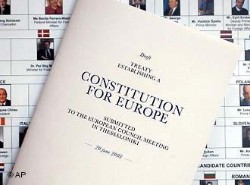 Why did the Brussels summit on the European Constitution collapse? Perhaps because it deserved to. The EU must move from government by elites who seek to manage, to one grounded on citizens’ support. People in Europe are about to get screwed and they don’t even see it coming. They will be forced to work longer hours, work until they are in their 70’s and they are going to have a rise in joblessness and out sourcing. Their medical benefits will skyrocket or be lost completely. After three years of near stagnation, the mood in Europe is definitely gloomy. Many doubt that the European model has a future. In this paper, I argue that things are not so bad, and there is room for optimism. Over the last thirty years, productivity growth has been much higher in Europe than in the United States. Productivity levels are roughly similar in the European Union and in the United States today. The main difference is that Europe has used some of the increase in productivity to increase leisure rather than income, while the U.S. has done the opposite. Turning to the present, a deep and wide ranging reform process is taking place. This reform process is driven by reforms in financial and product markets. 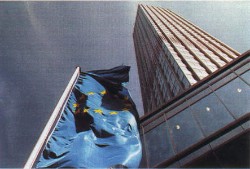 Reforms in those markets are in turn putting pressure for reform in the labor market. Reform in the labor market will eventually take place, but not overnight and not without political tensions. These tensions have dominated and will continue to dominate the news; but they are a symptom of change, not a reflection of immobility. It is worth noting that in the only two countries so far where the people, rather than their government, were given the option to vote on the EU constitution, it was roundly rejected. As to so called ‘rable’, do not believe everything you may read in the press about why ordinary French citizens, yes, even ordinary middle class French citizens, also choose to vote non. Demonizing the motives of those who voted against it are an attempt to discredit (and perhaps have the French government ignore) the results of the referendum. Thankfully the Dutch had at least as much good sense.  The first reason why the summit failed is the recent behaviour of France and Germany and the fear shared by most of the small and medium-sized EU member-states of a re-emergence, after half a century’s lapse, of hegemonic power politics in Europe. It is well known that the views of Berlin and Paris had more influence on Giscard d’Estaing’s drafting of the Constitution than opinions on the Convention floor. As a result, his proposed institutional reforms reproduced the Franco-German blueprint of January 2003 which gave France its president of the Council and Germany its (quasi-) elected president of the Commission (a result which happened to also be acceptable to Britain).  LUXEMBOURG (AP) - Luxembourg Prime Minister Jean-Claude Juncker said Friday he will step down if voters in his country rejected the European Union constitution in a July 10 referendum. If the charter is rejected, Juncker told reporters that he would see no possibility "to defend Luxembourg's interests in Europe.'' Luxembourg, with a population of around 400,000, has long been an ardent supporter of European integration, but polls suggest the vote could be close. Little attention was paid to the fact that small member states in the EU only very reluctantly and unhappily bowed to the so-called “consensual” results of the Convention. France and Germany’s unwavering “take it or leave it” position throughout the IGC showed that they liked what Spain and Poland did not. Meanwhile, Germany stubbornly refused to reopen the question of numbers in the European Parliament. This is no surprise, since it had won on the issue at Nice in exchange for its “generosity” on the weighted majority front. And yet, the draft Constitution annulled this latter concession by adopting a system where over 50% of the EU’s member-states and 60% of its population is required for a decision to be taken – the so-called “double-majority” formula which undoubtedly favours populous Germany above all other states.  German Reunification End of the Cold War In a previous era, when France and Germany played their role as the “motor of Europe” in a benign manner, other member-states may have acquiesced for the sake of Europe. But times have changed. Whether or not the two countries are heading for a history-making merger, as some French intellectuals dream, they are increasingly perceived as the two-headed dragon in the belly of Europe: not applying the rules of the game, but making them. So even as Gerhard Schröder confronted Polish prime minister Leszek Miller and Jacques Chirac evil-eyed Spain’s leader Jose Maria Aznar at their respective meetings on the eve of the summit, the two European giants could not assemble the rest of the EU in their support. There is arguably a second, even deeper, reason for the failure in Brussels. It lies with the perennial question of democracy in Europe. In spite of its grand opening quotation from Thucydides – who spoke 2,000 years ago about the rule of the many – the draft Constitution belongs to the very few. Neither the Convention process nor, even less, the inter-governmental summit in Brussels succeeded in generating the interest and participation one would expect from a Constitution written in the 21st century.  European elites will have to act differently if they wish to create a ‘constitutional moment’ capable of generating the kind of momentum and enthusiasm that such an occasion ought to command. They need to listen better, to create a real agora for debate. They need to involve representatives of civil society and solicit the input of scholars. They need to write in a clear, accessible style. They need to draft documents that inspire and do not seek only to manage Europeans. Try to imagine what historians will write about Europe in the year 2100.  Did integration succeeed in preventing a Third World War - as was the hope of the founders of the European Union? How stable was the Union after expansion to include many former Eastern bloc nations? What was the outcome of major showdowns between The Federal States of Europe and America through 2020-2030? How did the Union cope with massive influx of foreign nationals? What happened to national parliaments, laws, markets, languages and cultures? Major challenges to the future of Europe lie ahead. If the great experiment succeeds, it will create an economic, political and military force to pose real challenges to the United States, with its enlargement to 25 countries and a population approaching 500 million. Expansion will add 23% to the EU's land area and bring in 75 million additional citizens, with a combined economy of $9.3 trillion, approaching that of the U.S. 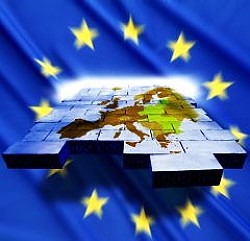 The Future of Europe will be costly Expansion is a costly business: EU subsidies to the Eastern countries will be $40 billion between 2004 and 2006, a large slice of the annual $97 billion Brussels budget. And that is unlikely to scratch the surface. Anyone following the decline of Germany's economy cannot fail to recognise the immense investment of resources by old West Germany into the East, for little economic return. Just visit smaller towns and cities in places like Slovakia or the Czech Republic, dominated still by Stalin-influenced mass-housing projects and decaying ex-communist infrastructure. Many of those 75 million new Euro citizens are existing on average incomes of no more than $450 a month, yet will have an expectation of the same kinds of economic and social rights that those in France, Germany and Britain take for granted. They will also find themselves bound by tens of thousands of EU directives, such as rules on food preparation and hygiene in restaurants, which will be impossibly expensive to implement without help. 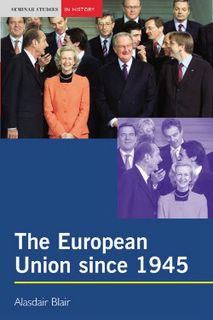 Deutsche Bank studies of GDP growth, productivity and other factors suggest it will take Slovenia, the most developed country, up to a decade to catch up with the EU average. The problem is most acute for Poland, the largest country in the new group, with a population of 39 million. The economy ground to a halt in 2002 with unemployment of 17% in early 2003. At current rates it could take 40 years for Poland to reach average EU living standards. Tensions may grow if workers in the West feel their jobs are not only moving East, but also their own tax money, which is being used to rebuild nations they care little about. If the EU continues as planned, a Greater Europe will rebalance unequal power struggles on the world stage, currently dominated by America even though America is consistently out-voted on many issues. But if the European experiment fails, it will disintegrate eventually into conflict and chaos.  The Most Likely Future for Europe The most likely scenario for the future of the EU over the next decade and a half will be slow but steady progress towards integration, held back by the rich diversity of cultures and economic situations. A Greater Europe cannot be built without strong EU governance and visionary leadership, yet these are the two issues which are notably missing at present. The European Parliament does not command the same sense of respect as national Parliaments, nor the connection with ordinary people. This is a serious problem. Who makes decisions in Europe anyway? Is it EU councils of Ministers who are appointed by their own governments? Is it elected representatives of the people (MEPs)? And that is the heart of the problem. The Future of Europe: Challenge of Tribalism Culture differences are profound and deeply sensitive. Take language for example. In France there is great resentment about the dominance of the English language and it is illegal to play too many English songs on the radio. It is hard to imagine such a profound division between different States of America. Passions of large numbers of people within the EU can be easily inflamed by insensitive decrees from Brussels, or by "unfair" treatment by one country of another. Disputes over beef, lamb, asylum seekers, chocolate, Iraq and so on are not just superficial. They often hide very long, historical issues and profound resentments. Finding a way through will mean finding a common EU voice, a clear moral lead from a commanding EU figurehead who will bring confidence and clarity. The current system of a 6 monthly rotating leader is unsustainable, confusing, destabilising and makes effective leadership impossible. 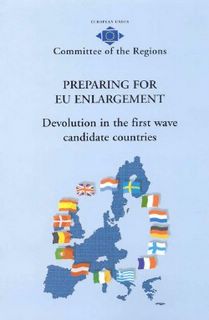 The Future of Europe: Challenge of Rapid Enlargement The European model is changing forever with rapid expansion to the East, doubling the number of countries and embracing nations that are extremely poor in comparison. Governance will be complex (we don't even have an elected President), and so will be the culture mix. Face the facts: ethnic cleansing is a daily reality in Europe - even in the UK. Every night somewhere in Belfast we see sectarian attacks and every morning the removal vans arrive to take another family away to another location. It is the same in Bosnia, and Kosovo, both part of old Yugoslavia, yet another part of the same old nation is entering the EU: Slovenia. So here we have nations rushing to become one, who cannot even stop people in the same street butchering each other because they want to be so different. So expect growth, extension, vast economic trading areas, and with it growing tensions, xenophobia and resentment.  Its Not Too Late It is not too late. A European Constitution can still come about. But all the continent’s leaders need to really reflect on what it would take to write a Constitution, one that is justified in beginning: “We the peoples of Europe...” The people of Europe desperately need to take back control of their own governments, and then work on a NEW union, built around democratic legitimacy and the European Parliament, not one built around the European Council. Power to the Parliament! Outing the European model of bureaucratic expansionism For half a century the ruling class of Europe has owned the project of European unification. Nobody bothered to ask the voters. But now they have made a mistake. Purely as a gesture, France, Holland and Britain scheduled popular referenda on the EU Constitution. The entire political and media establishment explained how a new Holocaust would follow if the referendum didn't pass. Jacques Chirac told the French that a "Yes" vote would be a punch in the nose for Uncle Sam, show up the Brits, and keep the wolf of capitalism from the door. Surprise! A New Media has risen in Europe, and made the case against the grotesque EU Constitution. And the voters have said "No." There's only one problem. For the EU, "No" really means "Yes," or "Maybe," or "We'll Get Back To You Later. Right after the French "No" vote, Jacques Chirac said that the EU project would keep moving along: the EU foreign service is forging ahead, EU military centralization will continue to undermine NATO, France and Germany will still want to raise taxes in Ireland and Poland to keep them from out-competing their bloated welfare economies, and the EU propaganda machine will keep whipping up feelings against the "Anglo-Saxon model" (also called free markets). Just to make his position really clear, Chirac appointed Dominique de Villepin as his new Prime Minister. Monsieur de Villepin is a Napoleonic fantasy-monger who is dedicated to creating a French-controlled Europe, to bring down American power in the world. De Villepin enjoyed shafting Colin Powell at the UN before the Iraq invasion, by leaking forged documents suggesting that Niger had sold yellow cake uranium to Saddam. When Powell told the Security Council about the documents, the French immediately leaked news stories that "European intelligence agencies" doubted their authenticity. That's because the French forged them all by themselves. De Villepin is the most anti-American politician in France. He recently published a new book called "The Seagull and the Shark" --- guess who is the seagull, and who is the shark? You're right. references .... *France's de Villepin Speaks *De Villepin looks in the mirror and sees a Seagull Government by Elites Europe's ruling class cannot give up the EU superstate for one big reason: hundreds of thousands of their careers are at stake. For thirty years Brussels has been a favorite employer for French enarques (graduates of the political training institutes of France). The Brussels bureaucracy has been stacked. As Daniel Hannan, a British Member of the (bogus) European Parliament has written, "The French governing class is the chief beneficiary of the European Union." That's why France is the biggest cheerleader for European unification --- not because the people wanted it, but because it promised fat salaries to tens of thousands of French bureaucrats and politicians. In fact, the EU is nothing but Super-France, the fantasy superstate the French elites have always lusted for. What about the voters? The New Media are now spreading in Europe. The Netherlands, which just overwhelmingly rejected the EU Constitution, has some 500,000 blogs, which played a major role in the No vote. There are striking parallels to the US. In Europe the Left had a media monopoly just as it did in the United States --- but even more so because of government-controlled media like the BBC. With blogs rising by the thousands, Europe may be seeing the first signs of a new class war, not between capitalists and workers, but between the people and the state. The vote against the statist Constitution may be a first sign. But just as the liberal elite in America will resist the New Media to the bitter end, socialists in Europe will fight for their entrenched power. Europe's ruling class has been amazingly irresponsible. They have been unwilling even to talk about regulating immigration from Islamic countries, even though the people have known for years that many Muslims will take generations to adopt Western culture. The elites have allowed France and Germany to wallow in a welfare culture, even though millions of hard-working Europeans live in poverty because of over-the-top taxation --- some of the EU states consume up to 70 percent of GDP. Europe's rulers have spread the fantasy that Europe can live in peace and freedom without ever having to pay the price of defending itself. Lying and misgovernment is endemic to the European ruling class. Europe is what hard core American liberals would like to see everywhere, a completely bureaucratized state from the cradle to the grave. Because British Labour represents the social welfare elites, Tony Blair may now renege on his promised referendum for Britain. German and Belgian politicians never even bothered to ask their people. They just passed the EU Constitution by a party vote of professional politicians. The politicians simply voted to abolish their own countries witout asking the people.  Europeans Are Programmed Class Citizens Americans rarely see how stratified European society really is. Low income Americans can expect to rise steadily during their lives, changing jobs every three or five years as opportunities open up. By contrast, most Europeans are corralled early in life into classes defined by their school test scores, like the ancient Mandarin bureaucracy. In France, the ruling class consists of those who have graduated from the elite state universities for bureaucrats and politicians. The European Union is therefore simply the product of bureaucratic expansionism. Even the British Foreign Service is being undermined, by promising its mandarins new and better-paying jobs in the EU foreign service. The EU undermines every member country by bribery and threats. A few decades ago every child in Europe was still forced to take the Baccalaureate exam at age eleven, to be corralled along a rigid career path for the rest of their lives. The highest scorers would go to an academic high school and college; the second group to a terminal high school; third and fourth went for low level and blue collar training. The test determined one's whole life. It was hard to change one's life after age eleven. While the system has now loosened up somewhat, the bureaucratic state still begins to exercise control early in life, and keeping control right to the end. When old people in the Netherlands are subtly encouraged to commit suicide using state-provided euthenasia, they are simply at the logical conclusion of a long bureaucratic walk through life. As Ronald Reagan said, many governments have a people; what is different about the US is that the people have a government. In Europe the people do not have a government yet. The vote against the grotesque EU Constitution may be a first step to genuine people power. But this is only a very early step. If the European New Media can be kept free from political control, there is hope for the future. Europe's bureaucracy is never shy about grabbing power, though, so we might well see efforts to regulate or stop the new voices from being heard on the other side of the Atlantic. Looks like the EU consitution is officially dead. Now 2 founding members have rejected it. I'm glad the Dutch government listened to its parliament (which was about 80% for the constitution but actually seems to have some scruples) and decided on a referendum instead of the non-democratic legistlative vote route taken by Germany. I think the people should be allowed to decide whether or not to give up their rights to an amorphous bureaucracy. Labels: Armageddon, Bible Prophecy, Bush Brotherhood of Death  Stumble It! Stumble It! |















































Comments on "the Future of Europe"
post a comment